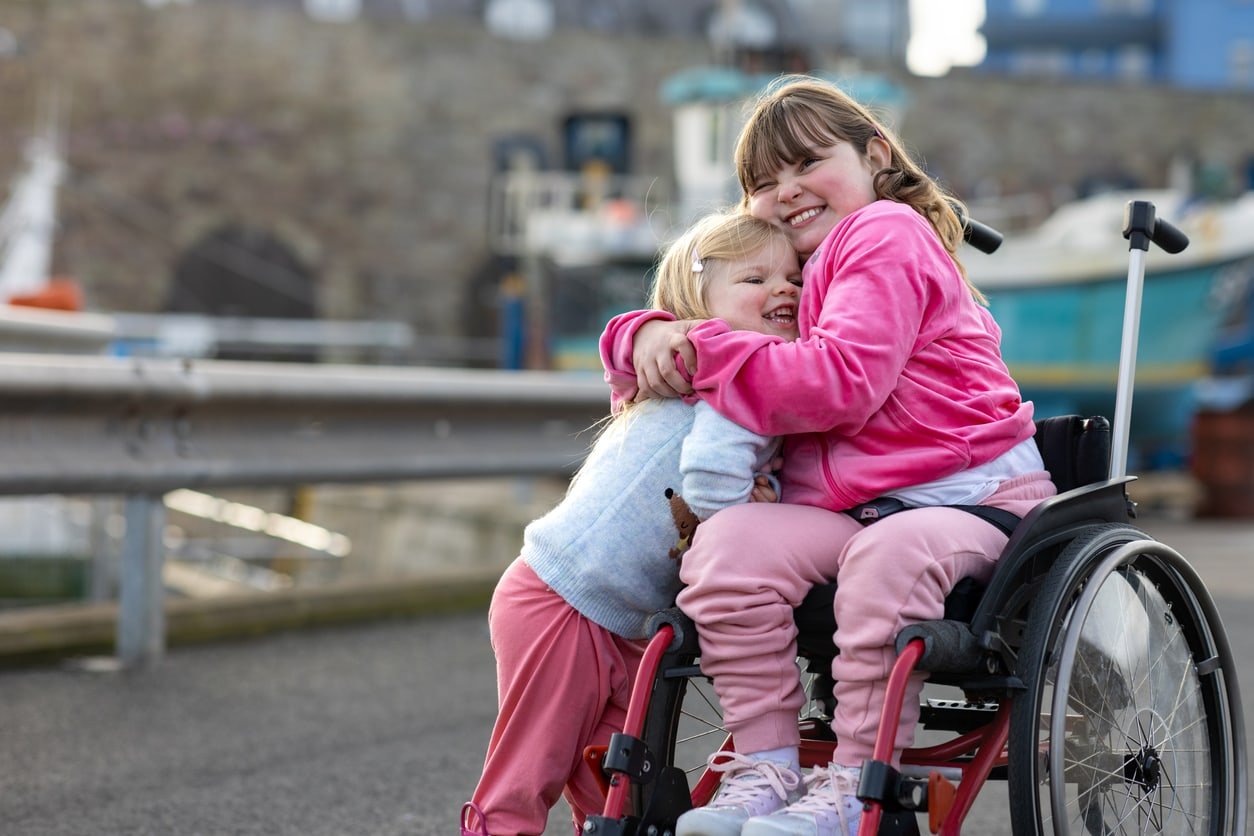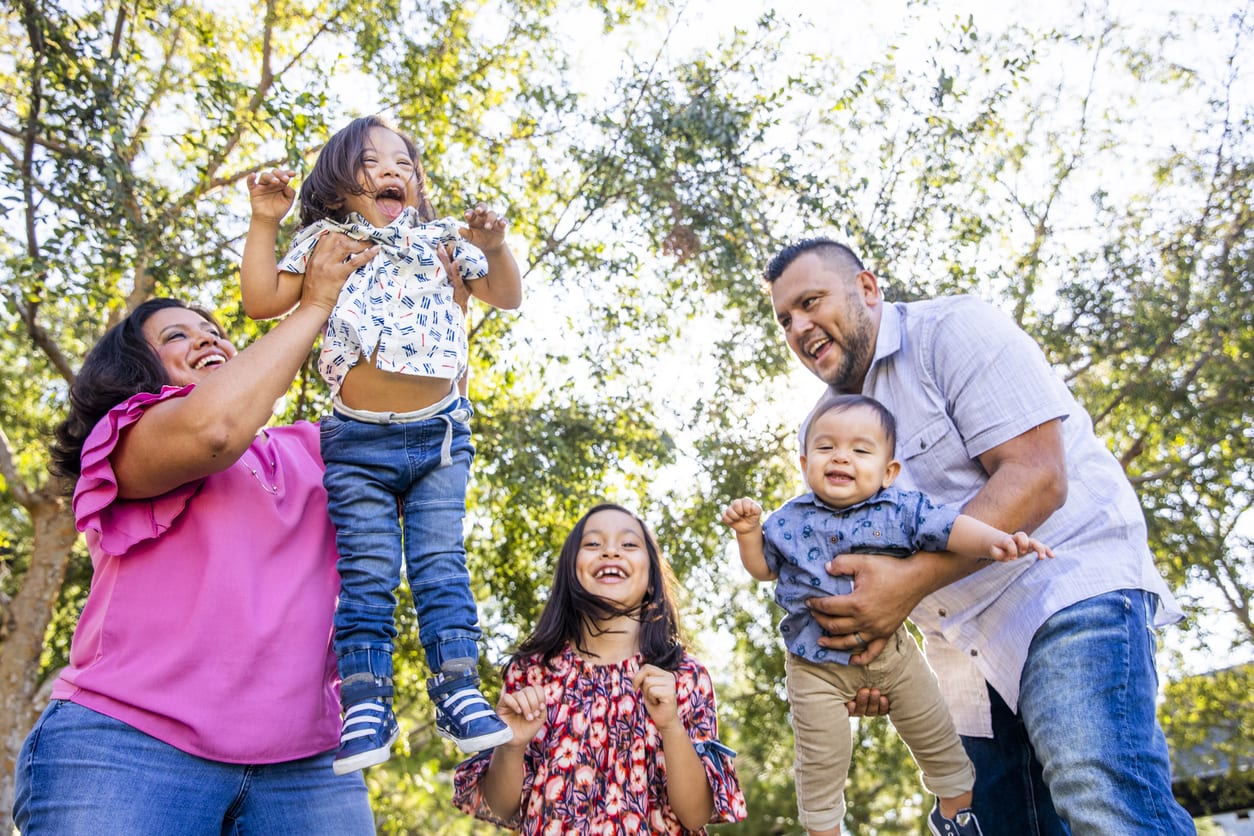One of the things that worries me most as a mom and a psychologist is children’s body image issues. I have two little girls, and seeing the rise of social media, the accessibility of technology, and the exposure to filters (or other ways of curating images of perfection) concerns me. Children are diverse, as are their bodies. But social media often creates or dictates unrealistic standards of bodies and what’s considered beautiful. As parents, it’s our responsibility to foster and develop a space where our kids experience a positive body image and can learn to love and appreciate their unique bodies. Given the challenges of our modern world, body positivity has become even more crucial. Let’s explore what it is and how we can cultivate confidence and body acceptance in our little ones, including helpful body positivity activities.
What Is Body Positivity?
So, what is body positivity? Essentially, this is the idea that all bodies are good bodies. It’s a mindset or way of thinking that accepts our body as unique, worthy, and beautiful in its own way.3 Body confidence or positivity is about helping our kids celebrate themselves, regardless of social judgments and standards. It means focusing on their innate strengths, qualities, and values rather than their image or perceived flaws or imperfections.3
Why Is Body Positivity Important?
Research tells us that attitudes toward body size and shape are formed in early childhood. Some studies have found that, even in young children, social stereotypes impact attitudes around bodies. They have negative assumptions or attitudes about larger-sized bodies and attribute more positive characteristics to thinner bodies.1 Yes, that’s right . . . even in children aged five and younger, there’s a preference for thin bodies. Many report experiences of body image issues, body dissatisfaction, and dieting awareness.2 These distressing findings highlight the need to promote a positive body image for our kids early on.
Having a positive body image and confidence is essential for our kids. It can provide protective factors against these challenges, specifically low self-esteem, eating disorders, or mental health conditions.4 A positive body image can also influence a child’s general well-being and make them more likely to adopt positive behaviors or attitudes, like eating more healthily, engaging in self-care practices, or exercising regularly.4
What Influences Body Image Issues in Kids?
Many factors can influence a child’s perception of their body, including the role of societal pressure and social media.5 This includes curated images children see (like filters) and unrealistic beauty standards shared on TV, in magazines, and on social media platforms. Exposure to these kinds of unrealistic bodies can leave children feeling inadequate or dissatisfied with their bodies.5
I know what you’re thinking: “But my child is too little to get influenced by social media and the way it portrays bodies!” Well, yes . . . and no. It depends on what they have access to when it comes to social media and even what they watch over our shoulders and see on our screens. I’ve recently seen a rise in TikTok challenges and vlogs from very young children sharing their (expensive and extensive) beauty and skincare routines. We know the content is out there, and it’s aimed at young kids.
Even if your child isn’t directly exposed to these representations of bodies, many of their peers will be. And research tells us that stereotypes about bodies can influence weight stigma, teasing, and discrimination. This can make young children vulnerable to low self-esteem, dissatisfaction with their bodies, and depression.6
Another major influence is how families talk about bodies. Though a parent may not speak negatively about their child’s body directly, children pick up on the way their parents talk about other people (their shape, weight, appearance) or their own bodies, including externalizing concerns about their weight or talking about dieting.1
8 Ways To Teach Your Child To Have a Positive Body Image

Your child’s personal body image or behaviors from others (such as bullying or teasing) can change how children feel about their sense of worth or their general well-being. It’s essential to identify strategies or body positivity activities to combat these issues and promote a healthy body image and self-esteem in our kids. Some ideas to consider include:1,4,5
As I mentioned above, kids are little sponges. They learn about bodies and what they should deem as “acceptable” or “normal” based on the way you talk about or treat your body (and others’ bodies). So, model body positivity by not mentioning other bodies — their shape, size, or appearance — in negative ways. And speak kindly and noncritically about your own appearance.
Focus on health and general well-being rather than weight and diets. Instead of talking about foods that are “bad” or “good,” you could explore the benefits of eating certain foods — what kind of nutrients different foods have, how they provide energy to move our bodies and play games, etc. Also, focus on positive health habits they can adopt, like getting enough sleep, having balance in their diet, and moving their bodies daily. Don’t focus on weight or appearance during these conversations; focus on overall health instead.
This includes things like curating their (and your) social media feed to show diverse bodies and content that highlights body positivity and confidence. Teach them to be critical of social media messages — learning about filters and understanding that people can change or manipulate images to look different. Remind them that influencers often take a thousand photos until they find the perfect one (and discard all the others to only portray perfection).
It’s tempting to tell our children how beautiful they are — and, of course, they are! We made our little humans and think they’re the most magical beings! However, it’s important to give shared attention to outer and inner qualities or even reduce the focus on their physical appearance. Otherwise, their sense of self can become tied up with being valued for their outsides.
Think about all the other wonderful qualities your child has, and celebrate those! Are they kind? Do they have a wonderful sense of humor? Do they bake delicious cakes? Are they exceptional at math? Do they give the best cuddles? Are they a magnificent artist? Do they always try their hardest? These are the kinds of qualities we want them to internalize and believe about themselves.
5. Valuing and Appreciating Diversity

Whether in the real world or through what you expose them to (at home, during play, etc.), make sure they see a mix of different bodies — shapes, abilities, and sizes. You can also read them picture books that explore body-positive topics and expose children to characters who are strong and capable and show confidence in a variety of different bodies.7 These books are some great starting points:
You could also give them a variety of diverse toys or dolls. There are some wonderfully inclusive dolls out there who have different sizes, abilities, and skin colors!
It’s important to catch your child’s negative self-talk and help them counteract it. For example, if you hear them say, “I don’t like my nose” (or arms, or legs, or toes), ask them about the purpose of the body part (noses are for breathing and smelling things). Have them consider whether their nose’s shape, size, etc. stops it from doing its job. Also, remind them how boring the world would be if everyone had the same-looking nose. Teach them about positive body affirmations and show them how to reframe negative thoughts by recalling new, more balanced, or positive views about themselves.
If you want to help your child develop body positivity, you must be willing to have open and transparent conversations. So, ensure you create a safe space where your child feels comfortable coming to you with questions about different bodies or their own body. It’s important that they feel safe and know you won’t judge them if they need to talk about a tricky subject.
If you’ve noticed that negative body image issues are impacting your child’s mental health or well-being, you might consider seeking external, professional support. This could be from a health professional or a psychologist who can explore what’s happening and work on strategies to support and improve your child’s health and well-being.
The journey toward body positivity and confidence starts at a very young age and is a lifelong journey. You can create a safe space in your family to accept and celebrate diverse bodies and empower your child to see their strengths, talents, and inner values. Then, they will be able to embrace themselves for who they are, not who society tells them they should be. Remember, all bodies are good bodies.


